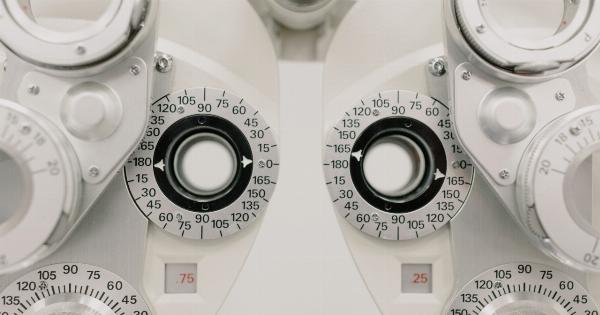Healthy dietary habits refer to eating a balanced diet that is nutritious and wholesome to improve body health.
Changing one’s dietary habits is an essential step towards preventing and treating certain ailments that are often caused by unhealthy eating patterns. Although it might seem challenging at first, changing dietary habits is doable and possible. In this article, we will discuss the reasons why individuals may choose to change their dietary habits.
Health Condition
One of the most common reasons why individuals change their dietary habits is because they have a health condition that requires them to adjust their eating patterns.
Health conditions such as diabetes, high blood pressure, and celiac disease require people to eat certain foods and avoid others. For instance, individuals with diabetes may need to monitor their sugar intake, while those with high blood pressure may need to consume a low-sodium diet. For those with celiac disease, avoiding gluten is critical for maintaining good health.
Weight Loss
Weight loss is another reason why people may choose to change their dietary habits. It’s no secret that being overweight or obese can lead to numerous health problems, including heart disease, type 2 diabetes, and high blood pressure.
Reducing one’s calorie intake by eating healthier foods and portion control can help in achieving weight loss goals. However, individuals should focus on changing their habits on a long-term basis rather than a short-term solution.
Environmental Consciousness
Environmental consciousness can also prompt dietary habit changes. People who care about their environmental impact often turn to diets that are sustainable and eco-friendly.
A sustainable diet includes foods that are produced in ways that are not harmful to the environment, such as organically grown fruits and vegetables. Additionally, avoiding foods that are transported long distances and reducing meat consumption can positively impact the environment.
Cultural or Religious Beliefs
Cultural or religious beliefs can also influence dietary habits. For example, Muslims celebrate Ramadan, a month-long religious observance that involves fasting during daylight hours.
During Ramadan, Muslims consume two meals per day; Suhoor, eaten before sunrise, and Iftar, eaten after sunset. Judaism also encourages fasting during Yom Kippur, while Hinduism encourages vegetarianism as a way of avoiding harm to animals.
Finances
Financial constraints can also promote dietary habit changes. Eating healthy can sometimes appear costly, making it unaffordable for people who are struggling financially.
People may choose cheaper, unhealthy foods because they are more accessible and affordable. However, it is essential to note that healthy eating on a budget is possible. For instance, individuals can opt for whole foods, avoid processed and packaged foods, and buy fruits and vegetables in season while on a budget.
Food Allergies and Sensitivities
Food allergies and sensitivities can also prompt dietary habit changes. Individuals who experience allergic reactions to specific foods need to avoid them to prevent an allergic reaction.
Sensitivities to certain foods may cause digestive problems, such as bloating, gas, and stomach discomfort, prompting individuals to adjust their dietary habits. Eliminating certain foods from one’s diet can help in identifying and managing food allergies and sensitivities.
Improved Mental Health
Finally, mental health improvement is another reason why individuals may change their dietary habits. Studies have shown that eating wholesome, nutritious foods can help improve mood and cognitive function.
Incorporating foods rich in vitamins, minerals, and antioxidants can reduce the risk of developing depression and anxiety, leading to improved mental health.
Conclusion
There are several reasons why individuals might change their dietary habits.
These include health conditions, weight loss, environmental consciousness, cultural or religious beliefs, finances, food allergies and sensitivities, and mental health improvement. Regardless of the reason for the change, it is essential to make healthy eating a habit for long-term benefits and better health.




























